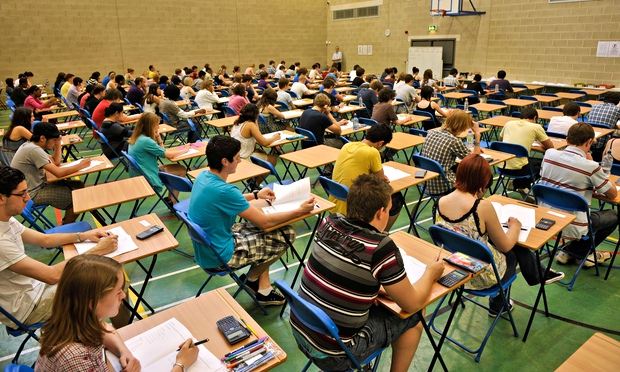
To Cambridge for a meeting of the OCR Science focus group. Always a good event, not least because of the diverse range of people involved. One of the developments discussed was the emerging nature of the questions that will be on exam papers for the new A-level exams. This is worth knowing about, not least because it has implications for curriculum design and assessment practice in earlier key stages. What’s coming up on the A-level agenda this year might not be too far from thinking about GCSE reform for next year.
We’ve known for some time that there will be questions with a significant mathematical content. The complexity required has been clarified in some detail but what is also becoming clear is that it won’t only be the procedural challenge (e.g. using a more complex formula) but also challenge in deciding which approach to use. The requirement won’t simply be that students will be expected to do hard sums but also that they will have to know which hard sums need doing.
Some of the questions will be synoptic questions, drawing on ideas from a number of different topic areas. This is, of course, one of the possibilities opened up by the ending of modular assessment. Items can be written that challenge students to use concepts from across the subject to develop a quality response.
There will also be a requirement for questions calling for extended written responses and these could be worth up to 9 marks. This is an Ofqual requirement so will appear in exam papers from all AOs. OCR’s approach is to use Level of Response mark schemes, not least on the basis that they have worked well at GCSE.
There will also be questions based on the stipulated practicals and these have a quota of 15% of the marks on the paper. Although they’re rooted in experiments that students will be expected to have done, they can be attributed to any of the assessment objectives. A question might, for example, assess understanding of a certain procedure, or ask a candidate to apply a procedure to a different context or it could assess the ability to analyse a set of data that has been provided. Sample assessment material is available and is well worthy of attention.
None of this implies exam papers that are easier than at the moment and I don’t think this will be a surprise. There’s often a conflict of values when teachers look at exam papers; on the one hand we want our students to do well so we get nervous if there’s anything tricky or too ‘left field’. On the other hand we want standards to be maintained so that the qualifications retain a status and are worth aspiring to. One of the intentions of the reform has been to raise standards – the exam papers are a pretty good way of judging whether this has happened.
Ed Walsh



